[Book Review] Hiring an AI Lawyer for $20 a Month with ChatGPT
- A practical review of a lawyer-written ChatGPT book through real applicability.
- Legal use cases are translated into reusable prompt thinking for non-legal professionals too.
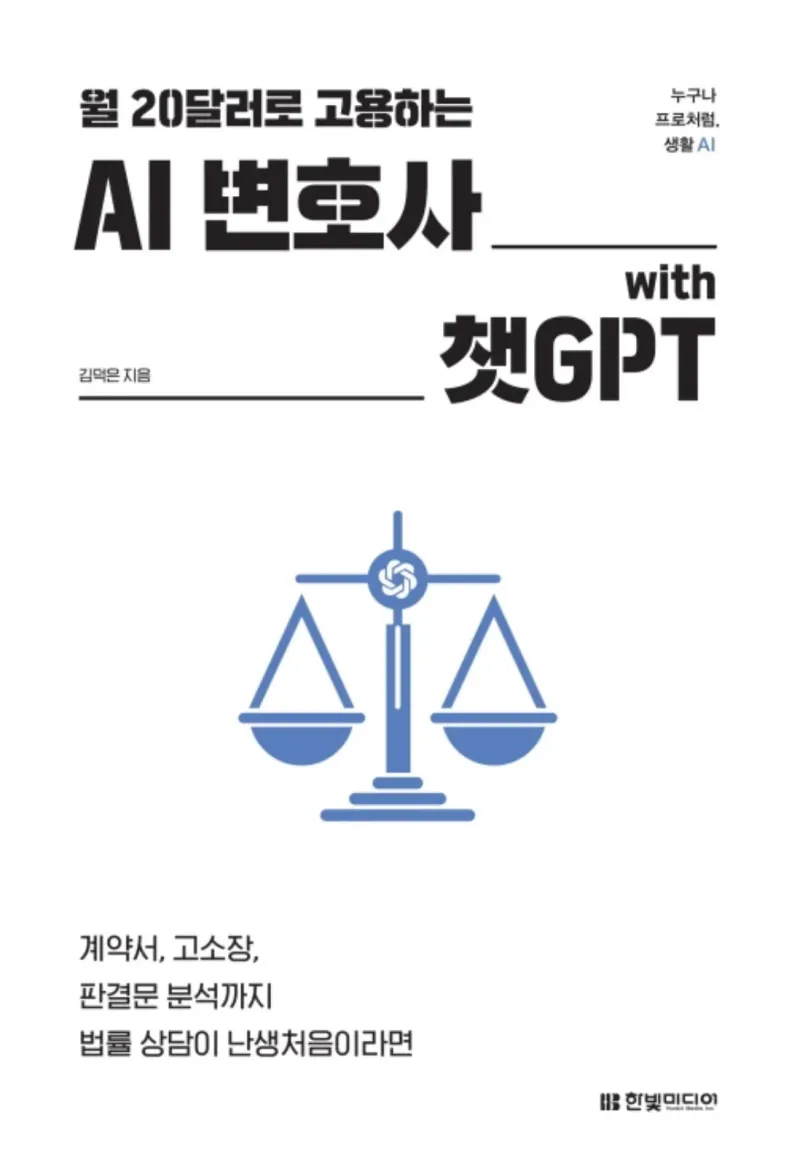
Hiring an AI Lawyer for $20 a Month with ChatGPT
This book is a ChatGPT utilization guide written by a practicing lawyer.
It provides a guide for applying ChatGPT to legal work, offering practical prompt examples and solutions for various legal problems including document creation, analysis, and review. It also introduces GPTs, a legal consultation chatbot created by the author.
Tedious contract reviews, complaint drafting, proof of content...
'Hire a lawyer' for just $20
Even if you're new to 'ChatGPT' or unfamiliar with 'law', anyone can work like a pro
Prompt guide and basic legal knowledge in one bookAuthor
Written by Attorney Kim Deok-eun (50, Judicial Research and Training Institute 36th class) from Law Firm Minju-ro.
Below is excerpted content from an interview related to this book:
"Lawyers adapting to and preparing for change is not simply a matter of survival. It's an essential process for improving the quality of legal services and providing better legal advice and support to clients. I especially recommend that you try using AI, as it can become a weapon for individual lawyers or local lawyers to gain competitiveness."
- On the motivation for writing the book.
I am a 'computer-illiterate' lawyer. What I can do through computers is simple document writing or internet browsing. When I encountered ChatGPT at the beginning of this year, I was very surprised by its capabilities. ChatGPT was essentially providing legal advice and creating various legal documents, processing legal work quickly and accurately. Local lawyers are experiencing more difficulties due to the introduction of video trials, and I hope this book will help them improve their competitiveness.More detailed interview link with the author
Book Review
I've separated the important content of the book and my impressions after reading it by topic.
Impact of AI on Professions
I felt that the concerns about AI in the IT field are not significantly different from other fields. Of course, there are differences depending on the field, but hearing what actual lawyers say about AI in the legal profession made me think that worries and expectations about such new technologies are not very different across any field.
Experts emphasize that while many legal tasks require consideration of human emotions, making legal professionals like judges, prosecutors, and lawyers still necessary, they must establish new survival strategies. Accordingly, legal experts are seeking ways to enhance their expertise using artificial intelligence or exploring new strategies focused on human areas that artificial intelligence cannot handle.
- From Chapter 1: Changes in Artificial Intelligence and the Legal MarketAI Application Cases in the Legal Field
Wevorce, a divorce-specialized tech company in the US, provides an online platform that uses AI to process divorce procedures in a humane way that minimizes conflict.
In France, there was an incident where an AI app that replaces lawyer work was released and lawyers protested against it.
Legal tech companies based on artificial intelligence are also growing in countries like Japan.
Major Korean law firms like Kim & Chang, Yulchon, and Sejong are introducing robotic process automation for translation and repetitive document processing tasks, and are focusing on strengthening forensic services by introducing electronic evidence presentation document review and voice record review.
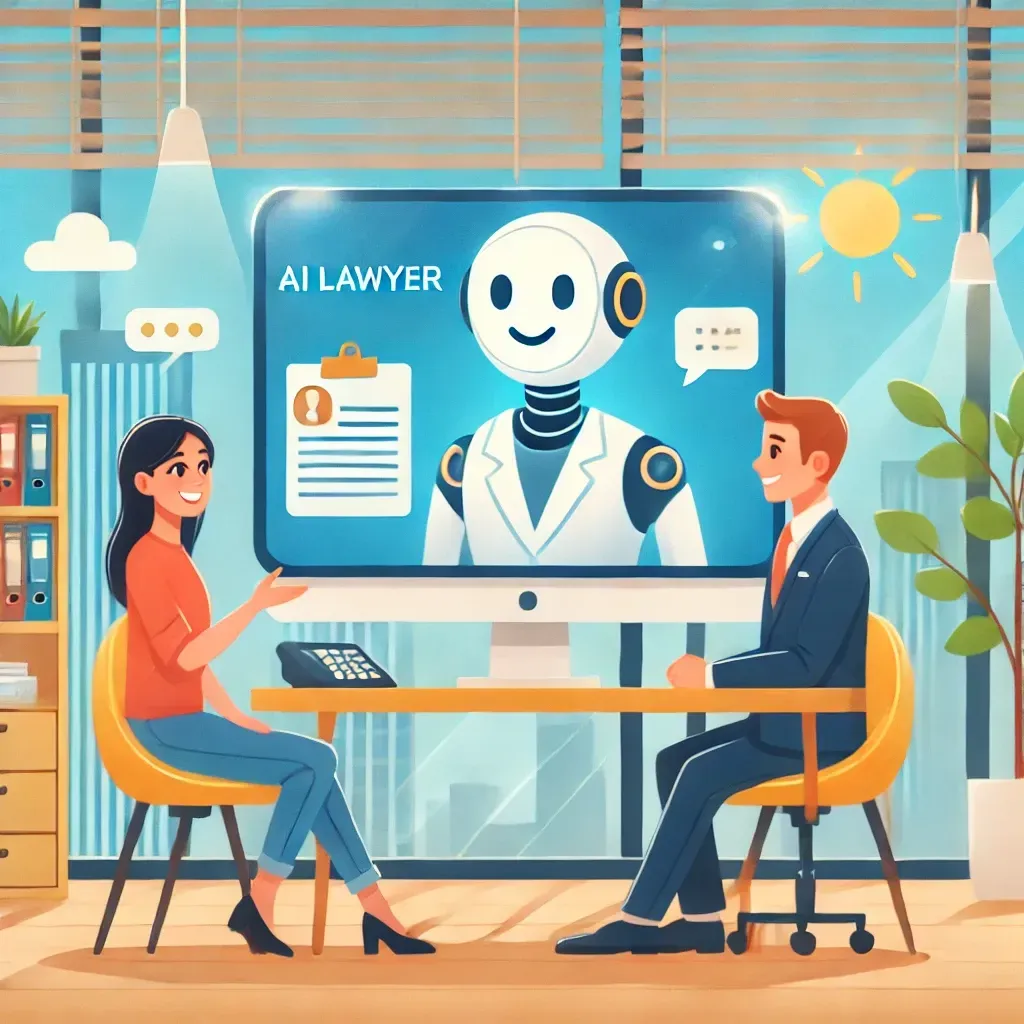
Using Latest ChatGPT Models
The book introduces not only GPT-4 but also the GPT-4o model. While not covered in detail, it also briefly introduces multimodal capabilities.
Actually, GPT-4o-mini was recently released, but GPT-4o is still cutting-edge information, so it's still noteworthy. As technology is rapidly advancing, keeping up with the latest models is important. In that sense, this book contains the most recently released information, which will help understand and follow the trends of the latest AI technology.
By the way, the 'o' in GPT-4o stands for omni, meaning 'all'. It seems to have been named with the meaning of supporting everything, i.e., multimodal, by integrating existing models like GPT-4 and GPT-4-vision.
ChatGPT Setup Tips
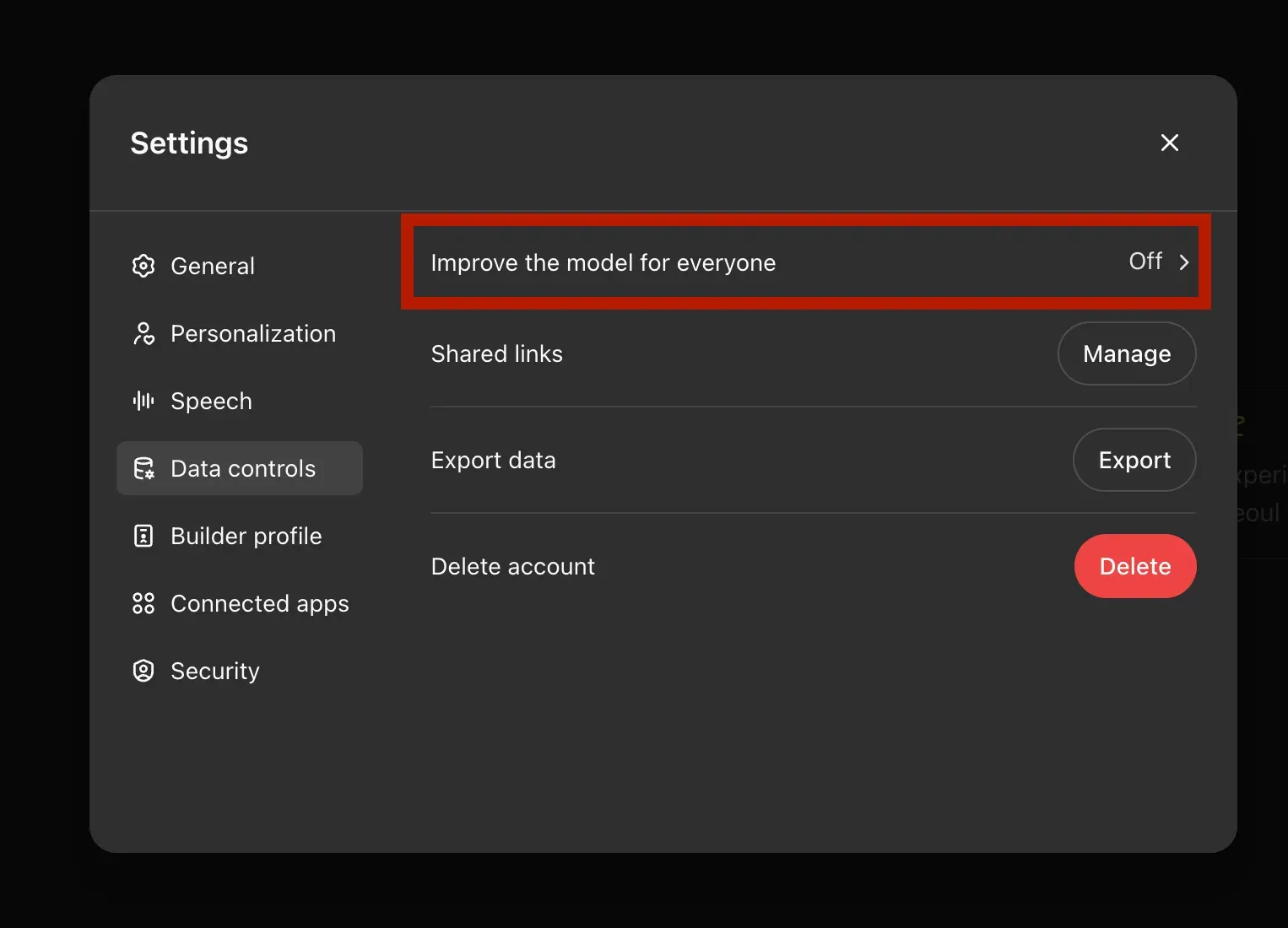
There's also a tip about disabling 'Model improvement for everyone' in data controls.
This seems to have been introduced since last year, but many people are unaware and use it with this option enabled. Since the book also introduces this, I think it's a good tip to add.
10 Practical Prompt Tips
Chapter 4 shows 10 ways to ask questions well. These provide examples based on real life rather than legal matters, so we can read and apply them immediately.
The 10 tips are as follows:
- Be specific and clear
- Set goals
- Provide context
- Ask questions step by step
- Assign personas
- Provide examples
- Expand perspectives through feedback and iteration
- Set audience
- Ask questions
- Set answer format
As one example, let's look at 'asking questions'.
I've been asking AI questions and getting answers, then organizing and using them myself, but I've never used the method where AI asks me questions and utilizes those results. Of course, this is a method mainly used when implementing AI chat services, but when using it personally, I can review directly, so I think I overlooked this method. I think I'll use this method frequently in my daily life now.
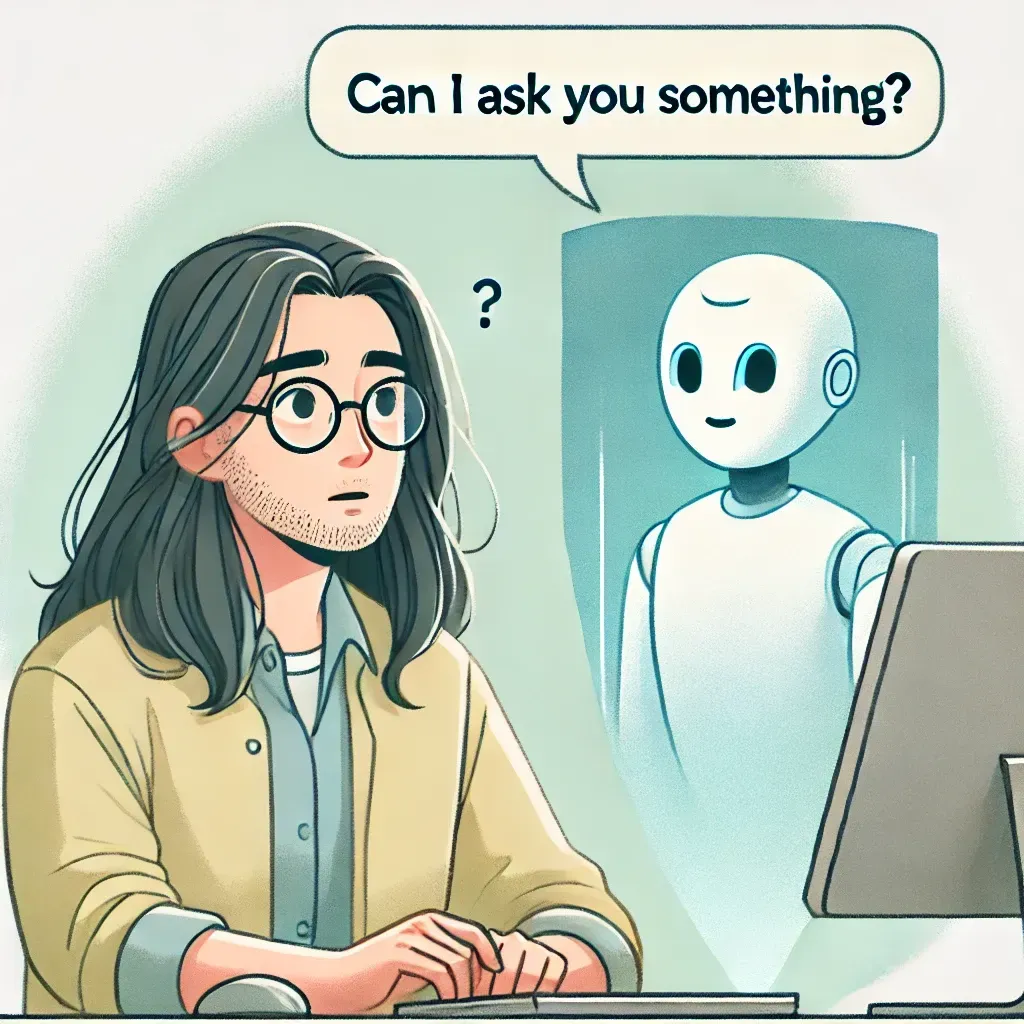
AI Legal Consultation
- Writing proof of content
- Analyzing court decisions
- Writing complaints
- Writing payment order applications
- Writing civil complaints
- Writing responses
- Reviewing contracts
It provides examples divided by topics of legal problems we might actually face. Generally, unless you're involved in legal problems like suing or being sued, many people don't know well about procedures or how things progress. I'm the same way. This book naturally tells stories with various examples of these situations, allowing you to experience the procedures.
It also contains tips for using prompts to easily understand legal terminology difficulties.
Of course, we must keep in mind that AI's answers have no legal responsibility.
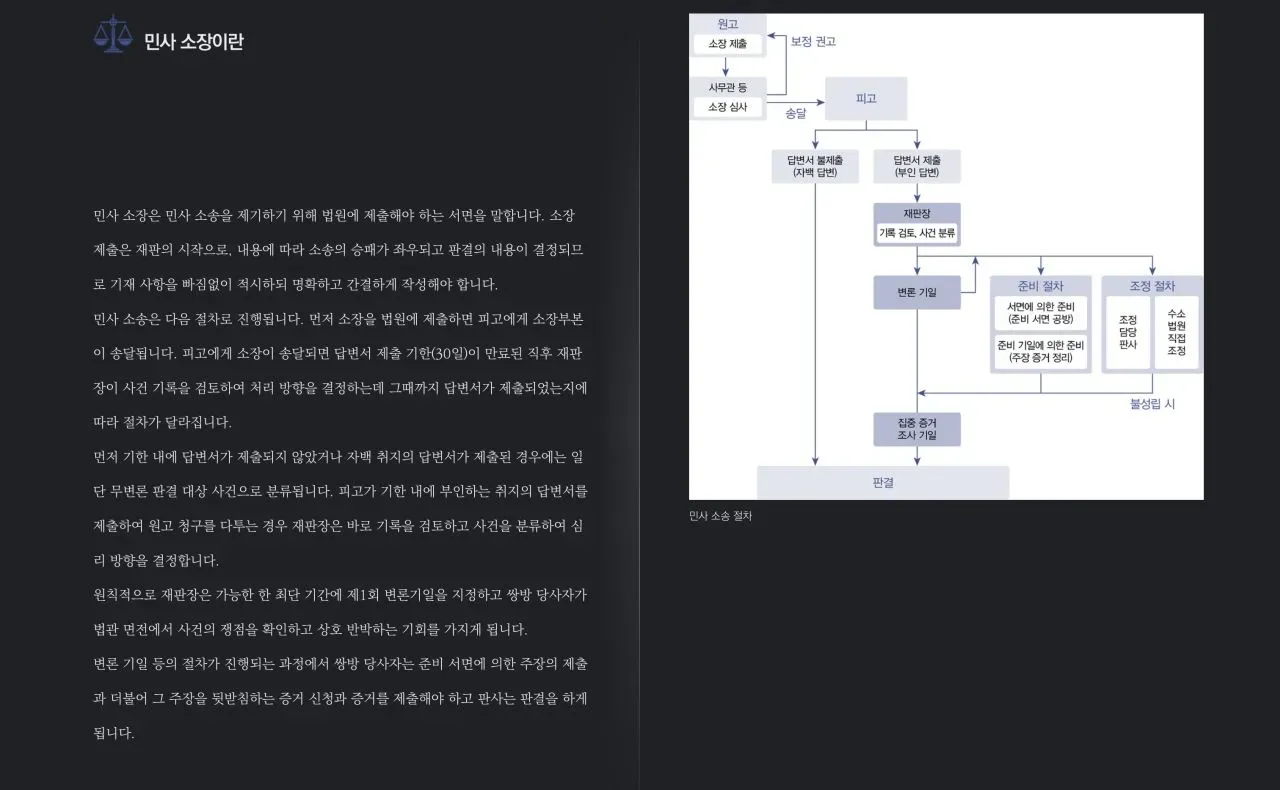
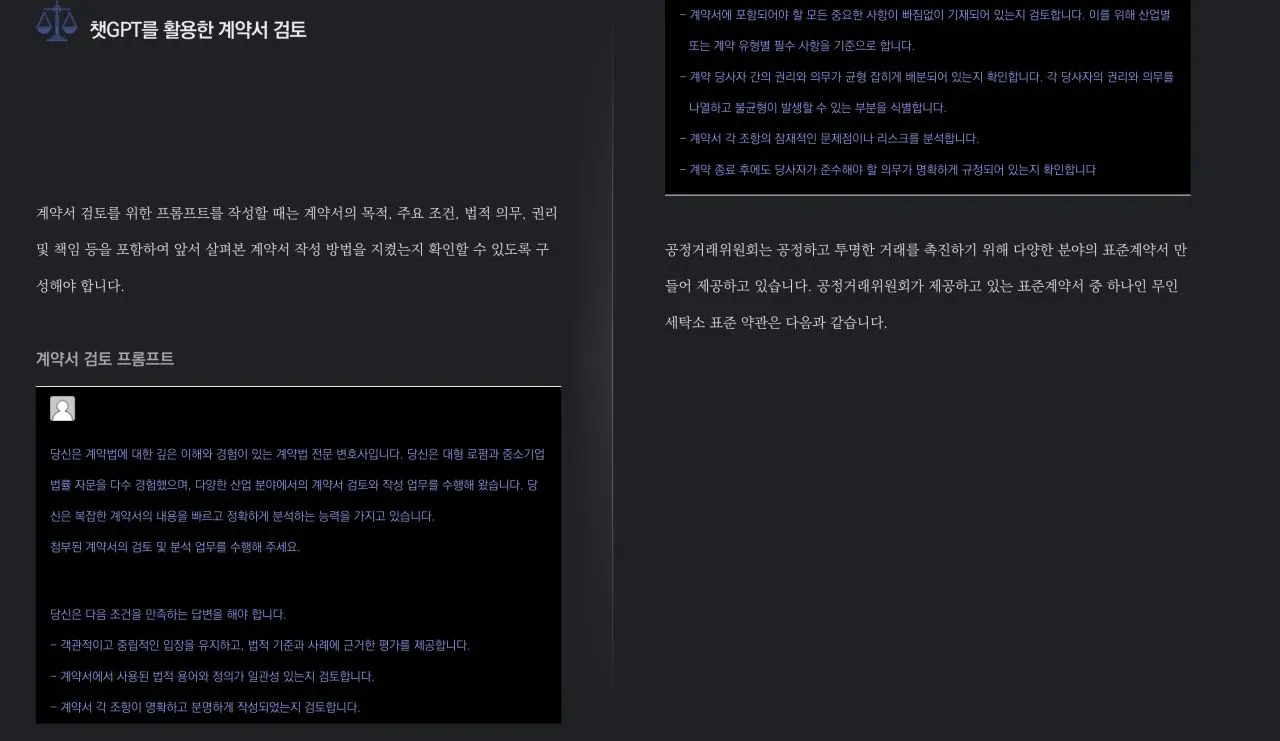
Highlighting Current AI Limitations
- Difficulty in complex legal interpretation
- Lack of contextual understanding depending on situations
- Difficulty in real-time updates
- Risk of incorrect legal advice
The author points out these problems exist in the legal field, but interestingly, the same problems can be seen in all fields where AI can have an impact. I think the IT field is the same.
Conclusion
A ChatGPT book written by a professional lawyer rather than someone from the IT field! Initially, I was more interested in the legal content and didn't have high expectations for ChatGPT-related content. However, these concerns were unfounded. After reading the entire book, I could feel how much the author had used ChatGPT, their know-how, experience, and deep affection.
Moving away from AI tool productivity or developer perspectives, this book approaches from a unique legal field perspective and provides a broad view of how AI can be utilized in various fields.
"This review was written after receiving the book for Hanbit Media's <I am a Reviewer> activity."![[Book Review] ChatGPT Office Productivity Master Guide for Working Professionals](/_astro/review-chatgpt-office-productivity-master-guide-20250418235456734.CGXc8opl.webp)
![[Book Review] Creating & Editing Videos with 7 Generative AI Tools: ChatGPT, Midjourney & Runway](/_astro/review-ai-tools-for-creating-and-editing-videos-20241225144505230.EhpRMksV.webp)
![[Book Review] 26 Content Design Projects with ChatGPT](/_astro/review-26-contents-design-projects-with-chatgpt-20250809174550351.C3IpzRDp.webp)